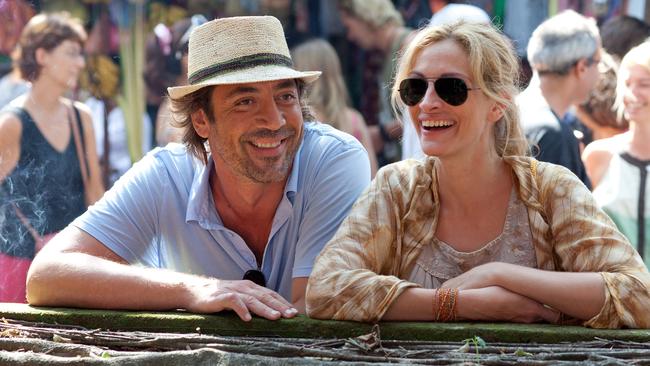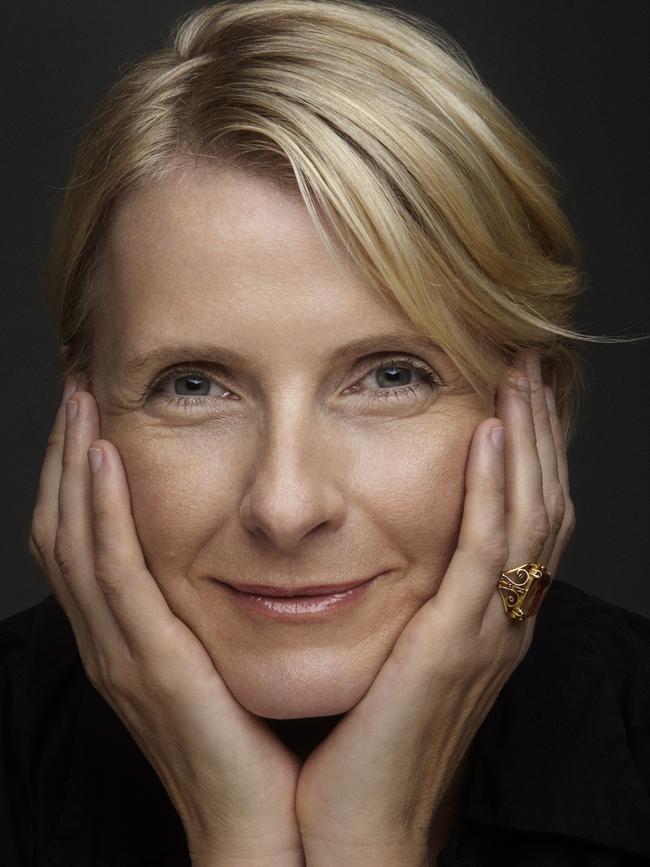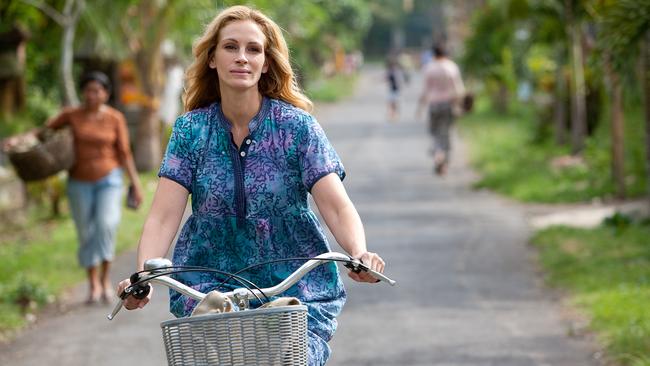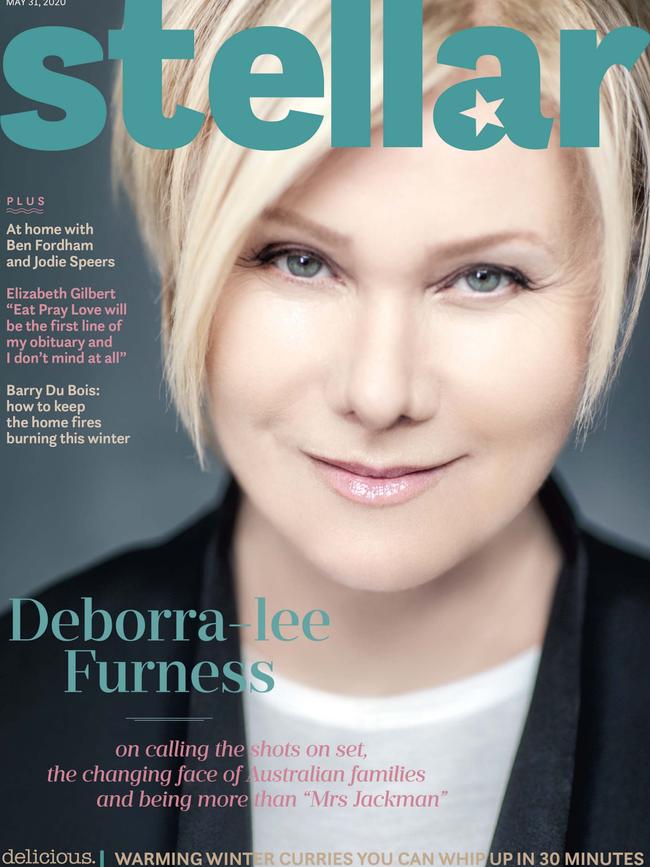Why Elizabeth Gilbert knows what her obituary will say
Eat, Pray, Love author Elizabeth Gilbert opens up about being child-free by choice, losing her partner to cancer and how she feels about the legacy of an iconic book.

Stellar
Don't miss out on the headlines from Stellar. Followed categories will be added to My News.
Eat, Pray, Love author Elizabeth Gilbert opens up about being child-free by choice, losing her partner to cancer and how she feels about the legacy of an iconic book.
Like Pretty Woman star Julia Roberts or Footloose’s Kevin Bacon, your name always seems to be preceded by the title of your most famous work. Do you ever tire of being Eat, Pray, Love author Elizabeth Gilbert?
It doesn’t matter to me in the least! Really, why wouldn’t they call me that? Nobody is going to refer to me by the title of my small collection of short stories that was published in 1993 and sold 2000 copies.
Eat, Pray, Love was a one-off and such a juggernaut, I have always assumed it will be the first line of my obituary, and I don’t try to compete with it.
Are there parts of the book that you’re still proud of all these years later?
If there’s something I’m really proud of, it’s that the phrase “eat, pray, love” has now become a universally understood shorthand for whenever a woman is travelling by herself, for her own reasons and on her own terms.
There wasn’t a word for that before, so it’s an honour that its legacy is the term for what happens when a woman is like, “Oh f*ck this, I’m out of here.”

And are there any parts – such as reading an old diary – that make you blush?
I mean, it’s not like I sit around reading it in the bathtub, but I had to write a new foreword for the 10th anniversary and I was saddened by one element I found in it, which is how much time I spend explaining and apologising for myself.
There is this one paragraph at the end of the Italy section – I just felt a stab of pain when I read it. I’m talking about how I felt fat and happy and free, but then I said something like, “I realise that very soon I’m going to have to put all this away and I promise that I will live a respectable, responsible life, and go back to being thin and miserable, but just not yet, please let me have a little bit more time.” Now it’s like, who am I negotiating with?
How did it feel accidentally becoming – and still being – a role model for people?
I don’t organise my life in a way to make it look like I’m a role model – I mean, obviously. Somebody asked me once, “Were you concerned about your fans being upset about the Eat, Pray, Love marriage breaking up?” But could you imagine? That would be insanity. I had so many reasons that I wanted that marriage to last, but none of them had to do with my “brand”.
You’ve written four books since then, most recently City Of Girls, a novel about New York’s theatre scene in the 1940s. What was your inspiration?
I had the desire to write the novel, which is, quite frankly, about women who spend their whole lives being promiscuous but are not destroyed by it, to counter that oh-so-familiar trope of the ruined woman, which has been the basis of some of the greatest novels the world has known.
But they’re depressing and punishing because they are meant to be cautionary tales to keep a woman in her lane. And I wanted to write about how we, as women, can survive our shame and bad judgement.

The media loves to interrogate women in the public eye on the question of whether children may or may not fit into their life plans – at almost any age. But male celebrities, not so much. This is a key reason why last year Stellar adopted a policy wherein those questions are off-limits. What are your thoughts on such a policy, and what do you think the collective impact of being obsessively asked about future parenting plans has been?
I think, universally and widely, it’s been incredibly detrimental. But I have a very different approach, which is I’ll talk about it until times get better. And I’ll talk about it with literally any woman of any age who wants to.
I was raised to believe there was nothing more important that a woman could do with her life. But when I was 30, I was falling into this spiral of anxiety and confusion because nothing in my nature wanted to have a child. And I’m delighted to stand here at the age of 50 and be like, well... that tracked!
Living my life as a free woman has been really joyful and being able to make huge shifts in my life based on my own navigational system has been brilliantly liberating.
By a certain age, many of us will have picked our path. But your life seems subject to continual revolutions. Is it purposeful that you’ve never “settled down” as such?
I always think that I’m going to. It’s not like I go into each new life and I’m like, “I can’t wait to blow this one up.” I’m always looking forward to some stability and serenity.
MORE STELLAR
Jacinta Tynan: ‘Something had to give’
Dr Andrew Rochford on his reality TV comeback

In 2017, you married your best friend Rayya Elias, only to lose her to cancer a year later. What lessons did you learn – or were you forced to learn – from such tragedy?
It was like an anvil. We both went into it with a lot of cockiness, but we were met with these forces that are much bigger than our inflated ideas of what we were capable of.
Rayya was an incredibly strong, incredibly brave person and was convinced she was going to do it on her own terms and curate the coolest, fiercest, most alive, most rock-star, bad-arse death.
I had no reason to believe she wouldn’t because she did everything else in her life that way. And I thought I would be the best caregiver who ever lived because I’m really responsible and really loving, and she was the love of my life.
But it broke her and it broke me. By the end of it, we were humbled by the reality of what it is to be a human being. I can’t imagine I’ll ever be the same.
Authors often talk about writing as a kind of therapy. Has that been true of your experience?
I’d had the idea for City Of Girls a long time ago, but put it away when Rayya was sick, then came back to it after she had died. It was a real tonic for me, to have a few hours a day where I’d be so caught up in crafting the story I got to forget that I existed.
That’s always been the really healing thing for me about writing; that you get to take a vacation from being who you are. All of us could use that sometimes.
City Of Girls by Elizabeth Gilbert ($19.99, Bloomsbury) is out in paperback Tuesday.
